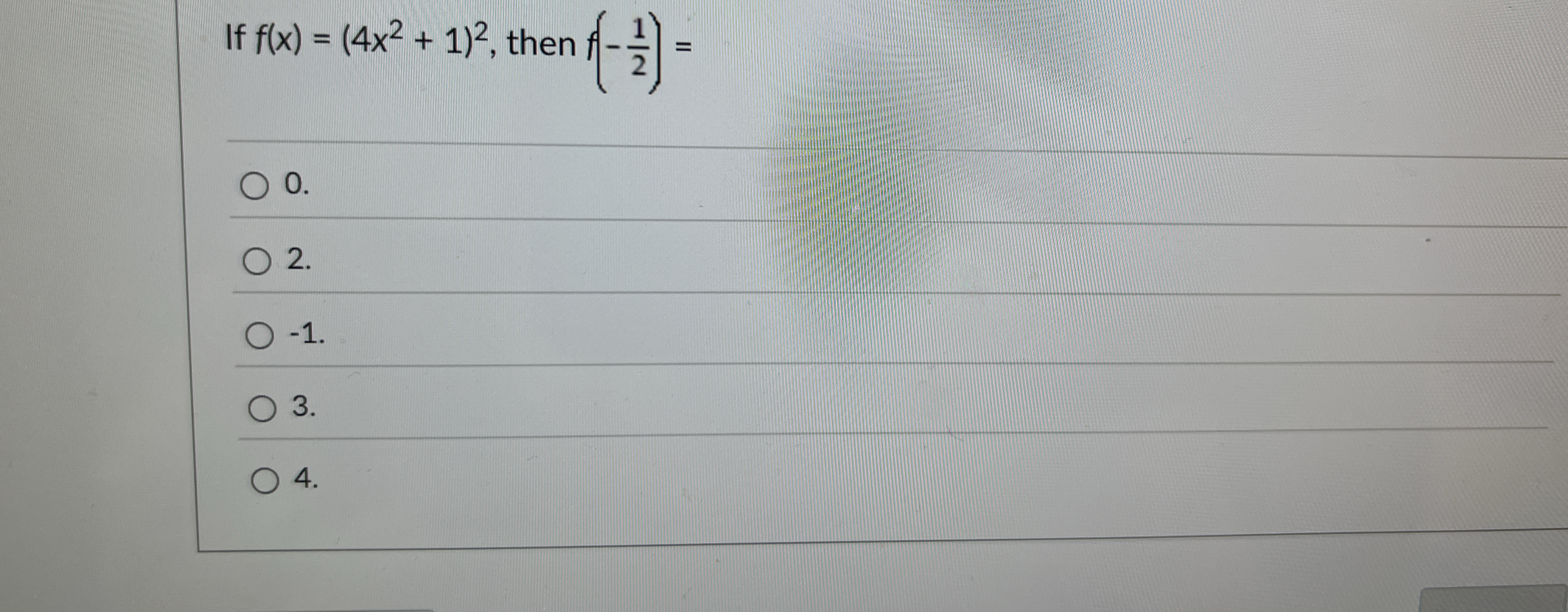If f(x) = (4x^2 + 1)^2, then f(-1/2) = ?

Understand the Problem
The question is asking for the evaluation of the function f(x) at x = -1/2, where the function is defined as f(x) = (4x² + 1)². To solve this, we need to substitute -1/2 into the function and simplify to find the result.
Answer
The result is $4$.
Answer for screen readers
The final answer is $4$.
Steps to Solve
-
Substitute the value into the function
We have the function $f(x) = (4x^2 + 1)^2$. To find $f\left(-\frac{1}{2}\right)$, we need to substitute $x = -\frac{1}{2}$ into the function: $$ f\left(-\frac{1}{2}\right) = \left(4\left(-\frac{1}{2}\right)^2 + 1\right)^2 $$ -
Calculate $(-\frac{1}{2})^2$
Finding the square of $-\frac{1}{2}$: $$ \left(-\frac{1}{2}\right)^2 = \frac{1}{4} $$ -
Substitute back into the equation
Now substituting this result back into the function: $$ f\left(-\frac{1}{2}\right) = \left(4 \times \frac{1}{4} + 1\right)^2 $$ -
Calculate $4 \times \frac{1}{4}$
This simplifies to: $$ 4 \times \frac{1}{4} = 1 $$ -
Add 1 to the result
So we have: $$ 1 + 1 = 2 $$ -
Square the result
Finally, we need to square this: $$ f\left(-\frac{1}{2}\right) = 2^2 = 4 $$
The final answer is $4$.
More Information
The function evaluates to $4$ when substituting $-\frac{1}{2}$. This means the expression $(4x^2 + 1)^2$ reaches a maximum at this point for this specific input, showcasing the squaring property.
Tips
- Forgetting to square the negative fraction correctly during substitution.
- Miscalculating the value of $4x^2 + 1$ after substitution, which could lead to errors in the final answer. Always double-check each arithmetic step.
AI-generated content may contain errors. Please verify critical information